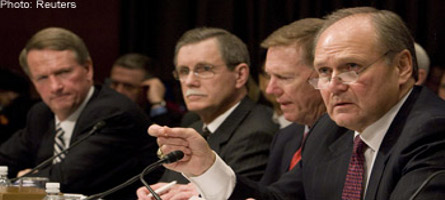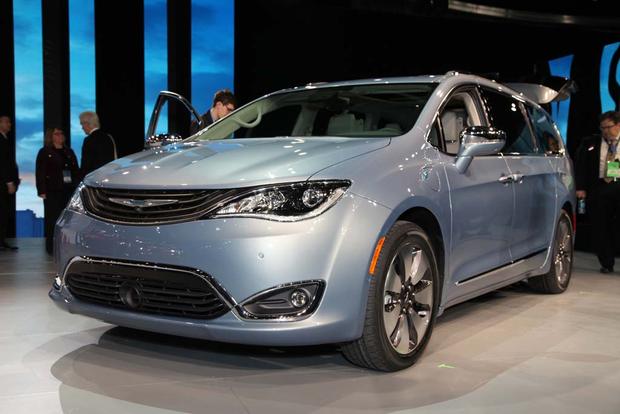-
2018 Buick Enclave “Avenir” will have ionic air purifier - April 12, 2017
-
Lease a Luxury Car for Less Than You Think - April 5, 2017
-
Shopping for a Car When Your Credit is Low - March 31, 2017
-
Aston Martin Closer to Unveiling Second-Generation Vantage - March 21, 2017
-
2017 Bentley Bentayga SUV: Offroad for $238,000 and Up - March 14, 2017
-
Pagani Huayra is Finally Here, Only $2.4M - March 9, 2017
-
Mercedes AMG E63 – For When Your Wagon Needs Drift - February 6, 2017
-
2018 Audi Q5 SUV: Enhanced Performance - January 30, 2017
-
2018 Toyota Camry Due in Late Summer - January 27, 2017
-
2018 Dodge Challenger SRT Demon Will Outstrip Hellcat - January 23, 2017
UAW Loses the Option of a Strike
The only truly effective tool a union has is the threat of strike. The job of a union is to give workers equal bargaining power with large companies. The workers all agree that if they are treated unfairly, they will stop any productivity at their employer by refusing to work. Rather than being able to replace any workers who don’t agree to unfair terms of employment and scaring the others into silence, employers are faced with the decision of either replacing an entire workforce or agreeing to fair wages and working conditions.
The wording of GM’s deal with the federal government for $13.4 billion in aid effectively removes the United Auto Workers union’s ability to strike. According to The Detroit News, a provision in the contract between the U.S. Treasury and GM states that if a strike should occur, GM would automatically be considered in default on the loan. If GM defaults on the loan, the U.S. Treasury Department could break apart the company and sell off its assets to recoup the billions of dollars lent.
As already discussed ad nauseam, the demise of GM could have cataclysmic effects on the U.S. auto industry. It would almost definitely be the end of the UAW.
Chrysler has made no official comment on the provision, but a source inside the company told The Detroit News that a similar clause is present in the company’s contract with the Treasury Department.
In reality, this provision probably won’t affect the negotiations between the UAW and the Big Three. The UAW has to realize that a strike at this point would cripple GM or Chrysler irreparably, and they’d be out of work anyway. Of course, GM and Chrysler have to know that demanding too much in the way of concessions from the UAW will lead to a strike, which would have been cataclysmic without the automatic loan default.
"They have a right to strike," GM spokesman Tony Sapienza said. "Obviously, we would go into default of the loan, which would not benefit anybody."

UAW president Ron Gettelfinger fought alongside the leaders of the Big Three to try and secure government funds to help keep American automakers in business.



















